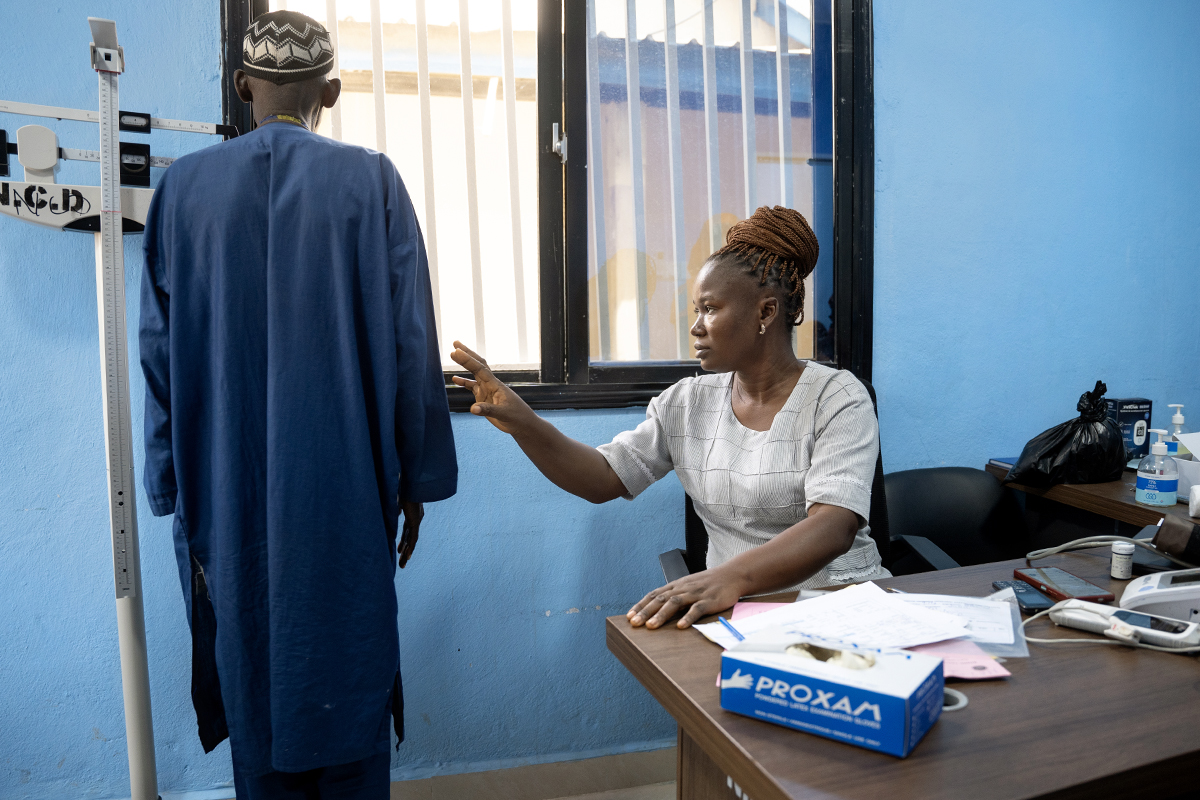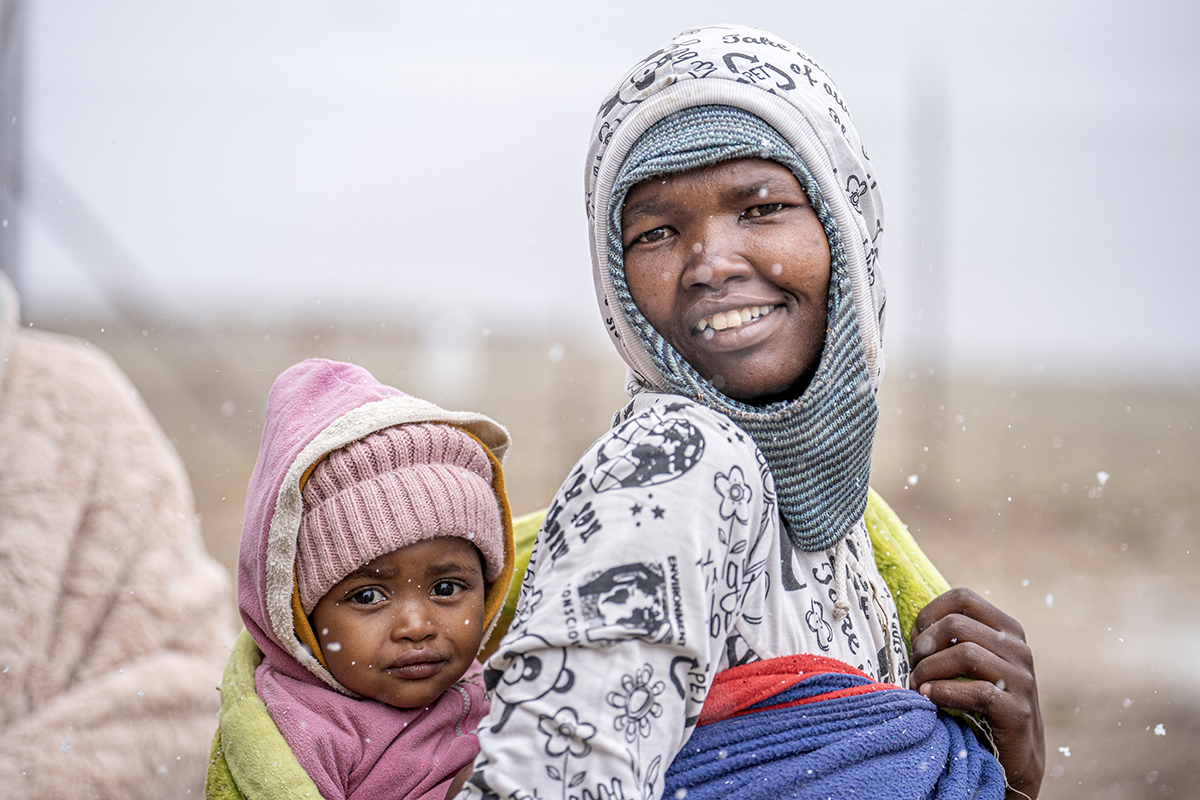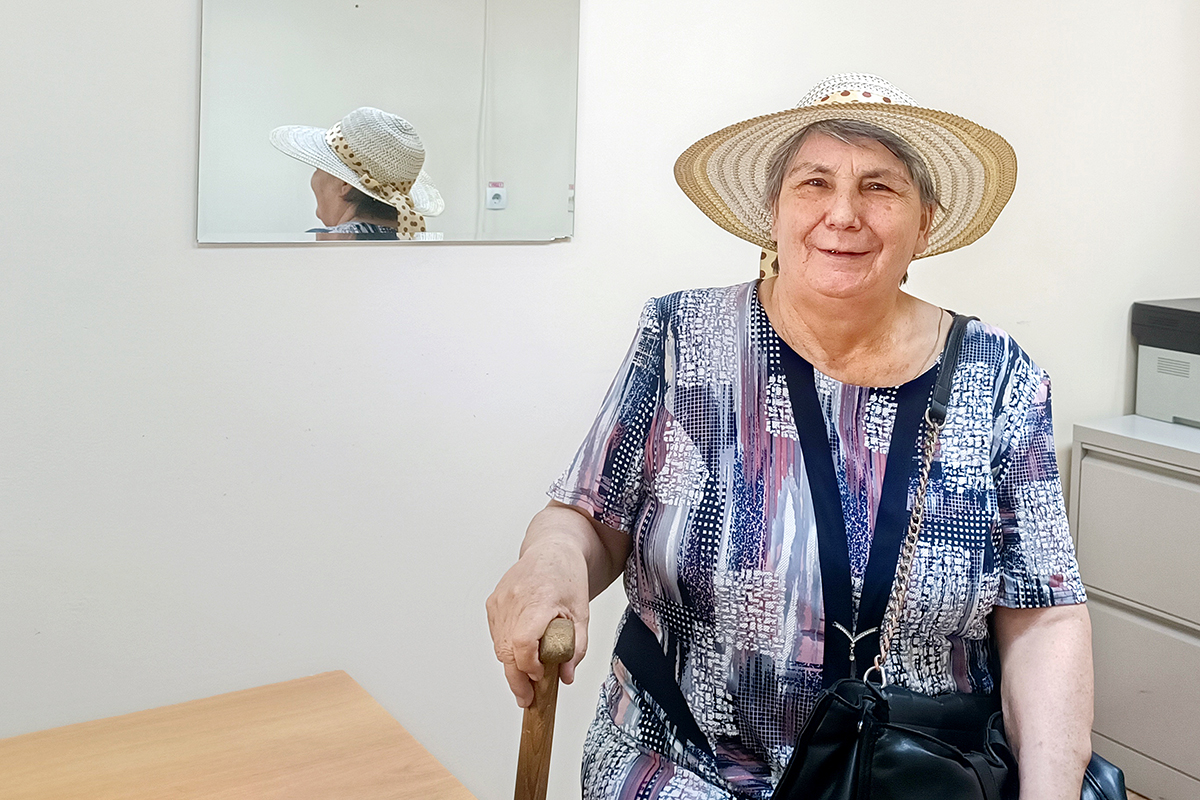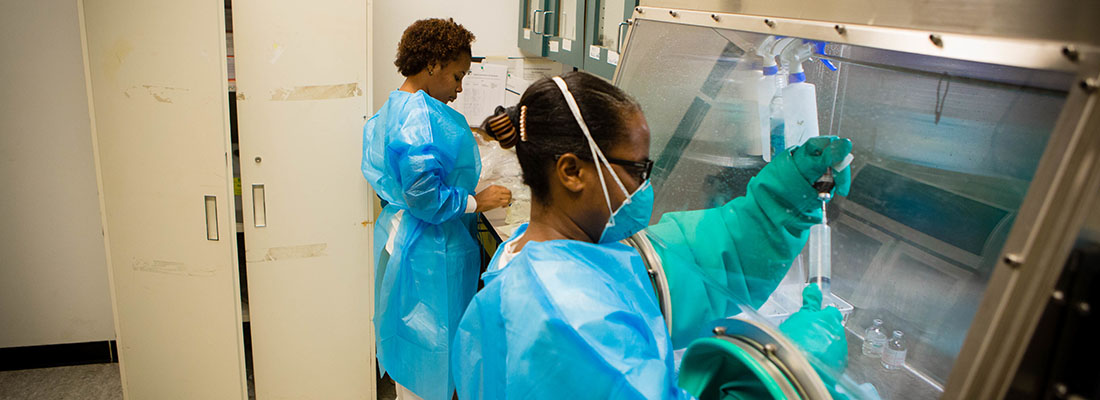
Cancer and Chronic Diseases
Diseases more commonly associated with wealthy countries, such as cancer, heart disease, and diabetes, are significantly on the rise in poor countries. A World Health Organization report from 2018 states that 15 million people between the ages of 30 and 69 die every year from non-communicable diseases (NCDs), as these types of illnesses are known, and more than 85 percent of those deaths occur in low- and middle-income countries.
It’s easy to see how this happens. People facing food insecurity often resort to high calorie, low-nutrition processed foods, because that is what is affordable, but this places them at risk for developing diabetes. A lack of hospitals or clinics means a family member’s hypertension could go undiagnosed for years. People living with HIV are at much greater risk of developing Kaposi sarcoma because their weak immune systems are susceptible to infections that can cause cancer.
Identifying and treating NCDs requires a dedicated global effort. If nothing changes, it’s estimated that by 2025, NCDs will cost poor countries $7 trillion in lost earnings from people who suffer these diseases, keeping millions of people trapped in poverty.
Partners In Health works to ensure that everyone living with NCDs receives health care by helping governments incorporate NCD programs into their public health systems and by building, advocating for, and implementing strategies that involve local, regional, and national partners.
More than 17,900 patients with non-communicable diseases in regular care. More than 3,200 patients receive cancer care every year.Our Impact
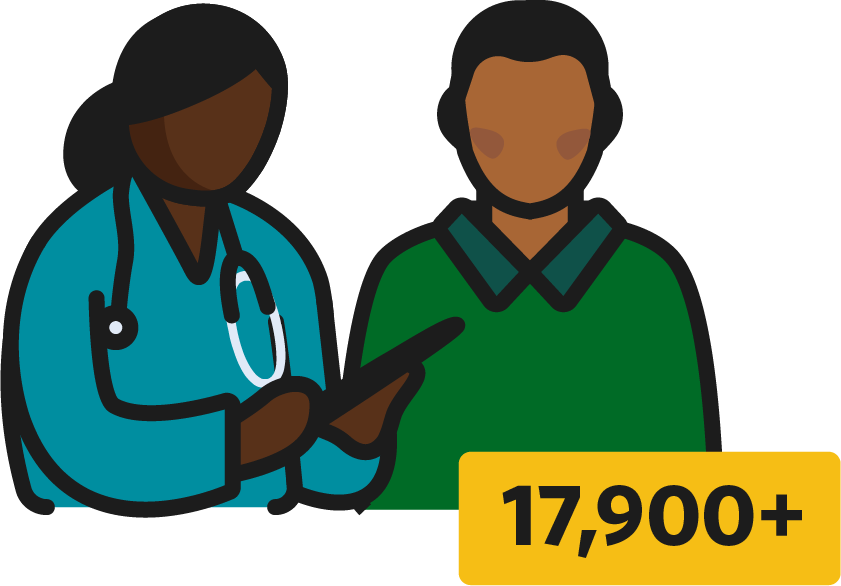
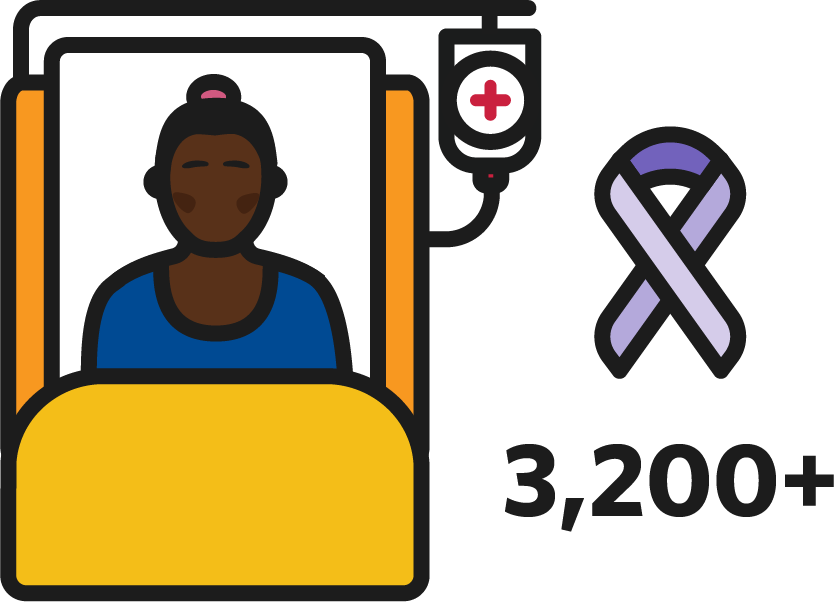
Cancer Care
Cancers are a leading cause of death from NCDs—9 million deaths per year, according to the WHO, second only to cardiovascular diseases. Cancer plagues people in all of the countries where PIH works, but our most extensive cancer care programs are in Rwanda and Haiti.
PIH opened the Butaro Cancer Center of Excellence in northern Rwanda in 2012 at PIH-supported Butaro District Hospital. The cancer center provides care for thousands of patients annually, who travel to Butaro from across Rwanda and neighboring countries, such as Uganda and the Democratic Republic of Congo, where high-quality cancer care is scarce or nonexistent.
At our internationally accredited University Hospital in Mirebalais, Haiti, the Roselene Jean Bosquet Center provides oncology care to hundreds of patients each year. Medical residents rotate through the cancer department as part of their specialized training. And surgeons conduct biopsies weekly to send to the nearby pathology lab, which can process tissue samples to help clinicians arrive at quick diagnoses.
Integrated Care
To find and treat a wide range of NCDs, community health workers (CHWs) are at the forefront of efforts everywhere PIH works. They screen patients for NCDs and refer them to clinics for treatment. Because many NCDs are chronic, CHWs also make sure patients keep up with long-term treatment and stay healthy.
We have developed these programs across the globe, from rural villages in Lesotho to poor urban neighborhoods in Russia, by combining screening and care for NCDs with our work in infectious diseases. A patient in Malawi receiving HIV treatment will be checked for other diseases, such as diabetes or hypertension. Someone ill with tuberculosis in Russia might also be treated for malnutrition while getting daily medication and care.
Many of our patients suffer from diabetes and hypertension in places where healthy food is limited or unavailable, such as the Navajo Nation and Chiapas, Mexico. Remote communities in these regions lack grocery stores that stock meat and other forms of protein, or fresh fruits and vegetables. To help battle obesity and diabetes on Navajo Nation, clinicians can prescribe fruits and vegetables to families, who then shop at participating local convenience stores for fresh produce.
NCD Synergies
The NCD Synergies team works across the PIH network to support NCD policy and integrated care delivery that’s designed to reach our poorest patients. NCD Synergies collects, shares, and advances essential NCD planning and implementation knowledge that is inclusive of those living in extreme poverty.
This work includes direct support for NCD teams in PIH-supported countries and high-level policy advocacy at the global level, through face-to-face and virtual collaboration, clinical mentorship and training, and development of publications, webinars, and conferences.
NCD Synergies also has partnered with the Lancet Commission on Reframing NCDs and Injuries for the Poorest Billion (NCDI Poverty) and formalized partnerships with several ministries of health, collaborating with trusted partners on the ground to make more equitable NCD planning priorities achievable.
Much of PIH’s NCD work involves research and advocacy. We document the lessons we learn in publications and reach beyond the 11 countries where PIH works, to share knowledge with practitioners all around the world.
Featured Cancer and Chronic Diseases Videos
